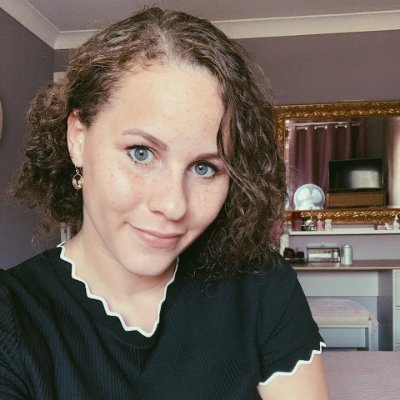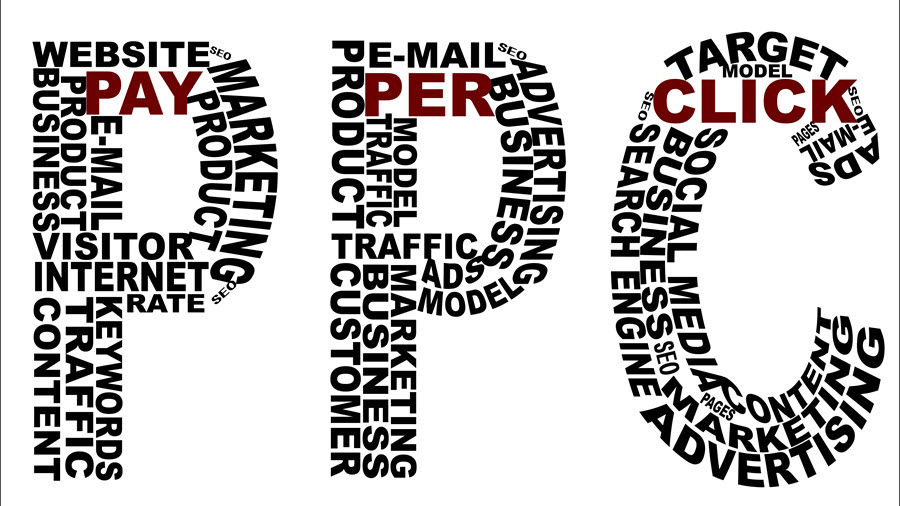PPC campaigns yield many benefits. For starters, they drive qualified leads to your website who are more likely to convert. Plus, they’re cost-effective and have a high ROI (when they’re done right, of course).
Digital advertising campaigns are popular among marketers. But if you’re new to paid advertising or your optimization efforts have plateaued (or worse), you can easily blow through your budget with little to show for your efforts.
To help you create winning campaigns without wasting any time or money, we turned to the experts and asked them to share their number one piece of advice and any best practices.
The tips and guidelines they share include underused strategies, what you need to focus on most, why getting super targeted with your campaigns is the best approach, and a whole lot more.
Everyone we consulted has extensive education and experience in the world of advertising and digital marketing. These are tips you can count on.
Justin Seibert, Direct Online Marketing
Putting aside the fundamentals (planned testing, strong landing pages, thematic structures, etc.), video feels like the most underused tactic in PPC today. It can feel like the most difficult hurdle to leap; you need to create short video ads and may not have the expertise to do so in house. With all the different targeting options available to all Google Ads advertisers – and even more in beta – video is no longer just about brand awareness and reach. It is now an effective direct response vehicle.
“Video is no longer just about brand awareness and reach. It is now an effective direct response vehicle.”
For videos, try 6, 15, and 30 seconds in length. Longer videos can still support your message on landing pages, but shorter videos will drive better results. If you use TrueView In-stream ads, make sure to get your most important messaging and brand assets in the beginning as viewers can skip your ad. But the good news is that even if the viewer skips your ad, you just drove free brand awareness. You only pay if someone watches at least 30 seconds of your ad (or the whole thing if shorter) or interacts with the ad, such as clicking on a link.

Justin Seibert is the President of Direct Online Marketing, a top 200 Premier Google Partner with a global clientele base. An 18-year digital advertising veteran, Justin has three times been named a top 25 most influential expert in search for speaking at conferences throughout the world.
Reach out to Justin on LinkedIn.
Chris Alexander, Big Oak
To have a successful PPC campaign, you have to be Return on Investment (ROI) focused. That entails continual monitoring, adjusting campaigns, keywords, bids, ad copy as well as keeping up with a myriad of google changes. ROI should be your most important measurement as it represents the actual effects of a PPC campaign. Don’t get too caught up in signals like impressions, clicks, interactions, page views, or buzz.
“ROI should be your most important measurement as it represents the actual effects of a PPC campaign.”
Have great ideas as your starting points; however, don’t be invested in any particular keyword, ad copy, or concept. Let the data in your campaigns determine what is successful. Make sure you have clearly defined Conversion Goals that are ROI driven and results in actual sales and profit. A Conversion is not just a lead. A Conversion is not just filling out forms or a phone call. A Conversion is an actual transaction in which the business owner receives money. Adjust your methodology so that PPC is in alignment with real sales and not merely marketing funnel conversions or other non-revenue signals.

Sophie Logan, Adzooma
As tempting as it can be to strive for high volumes of clicks and ad engagement, stripping back your campaign and focusing on the relevancy of your campaigns is my number one tip for a successful PPC campaign. Whilst a more targeted approach will reduce the scope of your campaign, it will ensure that your ads are more likely to be shown to the right audience. Therefore, the quality of your campaign’s performance will improve on the whole.
By utilizing demographics, location, and audience targeting, you can target people who are closely associated with your current target audience to help ensure that those seeing your ads are likely to be interested in your product or service.
The relevancy of your campaign targeting and ad copy will not only help improve the quality of its performance but will also help you reduce wasted spend on irrelevant traffic.
‘Affinity’ audiences for honing your targeting towards those with particular habits and interests, and ‘In-Market’ audiences for reaching those who are actively researching a product or service, are invaluable ways to focus your targeting to a relevant audience. Layering these on top of demographic and location targeting will further strengthen the relevancy of your target to ensure your ads are being shown to the right people.
Similarly, ensuring that your ad copy is relevant to a user’s keywords and intent will increase the likelihood of your ads being clicked. By taking the time to write ad copy that’s specific to your ad group’s topic, you’ll be providing a clear, specific answer in a sea of results pages.
If you haven’t already experimented with them, try adding a Responsive Text Ads (RSA) variation to your ad groups. This ad format utilizes machine learning to display the most relevant combination of headlines and descriptions to an individual, based on their search query, intent, and browsing behavior.
You can provide up to 15 different headlines and 4 descriptions for the algorithm to choose from, and the technology will choose those most relevant to the searcher. Implementing this into your ad extensions will further confirm to the searcher that you have what they are looking for, encouraging them to click through and begin the conversion journey.
Thinking about the relevancy of your campaign targeting and ad copy will not only help to improve the quality of its performance but will also help you to reduce wasted spend on irrelevant traffic. The budget saved from not paying for clicks from users who do not convert can then be spent on appearing in more search results of the right audience; who are more likely to convert. Win, win.

I studied at the University of Essex and have a Masters in Advertising, Marketing, and the Media. Since graduating I have specialized in Paid Media with a keen interest in the psychology behind user behavior. Outside of work I am obsessed with all things to do with True Crime and spending time with my pug, Dexter AKA PPC Pug.
Follow Sophie on Twitter.
Andy Boreham, Red Hot Penny
The best path to success for a PPC is understanding the wider context of both the brand you are advertising on behalf of and their target audience. Whilst there are best practices such as keyword/advert relevancy, using all 3 headlines or having multiple ad variations within an ad group that you’ll see within various training guides on Google and other sites, don’t be afraid to think outside the box.
When and if you can, talk to client contacts/colleagues both inside and outside the digital/marketing teams – they’ll have knowledge about the past, present, and future that will enable you to be proactive and produce stronger results. Whilst there is an understandable focus on automation and the benefits that can sometimes bring, it’s useful to take a step back from the data and plan for what’s coming up.
Whilst there are best practices such as keyword/advert relevancy… don’t be afraid to think outside the box.
Useful discussion points that can help produce an action plan include:
• Upcoming promotions (both online and offline) – should we be holding back budget or increase our bids in upper funnel channels to create awareness and produce a better end result.
• Competitor/Wholesale Activity – are your competitors in a sale, or do the wider team know of an upcoming promotion that will cause performance to dip? Insight beyond what might be appearing in the results pages today will help you prepare for tomorrow. Do your resellers have preferential deals that may cause prices to be less competitive and affect conversion rate? Both of these factors will cause issues to the conversion rate that automation will not realize as quickly.
• Best Sellers on other non-managed channels – are there mismatches between your performance and what the client is seeing at the top level? Finding opportunities that aren’t necessarily obvious within PPC data is vital for producing both long term and incremental revenue/lead growth. Arrange for the client to send over top-level performance of products every month so you can overlay this with your data.
Ultimately, there are fundamental basics within any PPC account/campaign that you will almost always need to follow. That said, in order to move from an average campaign to one that is outstanding, it is vital to understand the wider business goals and challenges beyond Paid Search so you can always be one step ahead.

As Paid Media Manager I build and optimize campaigns to ensure the best returns for your media spend, working with both B2C and B2B brands. Whether targeting new customers via Paid Social, Display and YouTube or driving sales through Remarketing and Paid Search, I and the wider Red Hot Penny team deliver the perfect made to measure strategy built for the long term.
Follow Andy, and the team, on Twitter.
Tyler Bowles, Total Product Marketing
When devising a successful PPC campaign, the most crucial component is always your audience. WHO do you want to see the ad, and WHAT desired conversion do you want this group of people to make?
According to Marketo, 96% of first-time visitors to your website aren’t ready to buy. To take them from unsure prospects to confident buyers, you need to nurture them towards the sale. That’s where retargeting becomes so valuable.
Retargeting is the holy grail of PPC ads. Why? Because users have already seen your brand and are much, much, much more likely to convert. With so much noise, fake news, and endless advertising streams, how do you cut through the clutter of social media? Brand trust & recognition are at the top of the list.
When considering a remarketing campaign on any platform whether it be Facebook, Linked-in or Google Ads, keep an eye on your list size. It is best to have your pixels/remarketing code installed months before you start your campaigns to ensure your lists build to a sufficient size. Personally, I like to go back 3-6 months, to capture all users who may have visited your site in the past, but had forgotten about your brand. Hitting this audience with a compelling and attractive ad now puts your brand top of mind and fosters a sense of nostalgic brand recognition in the process.
Have your pixels/remarketing code installed months before you start your campaigns to ensure your lists build to a sufficient size.
It’s hard to say that a single factor in a PPC campaign contributes to immediate success. But one thing is for sure – if you couple excellent targeting, with stellar ad copy, striking imagery and in-depth A/B testing, you will be miles ahead of most campaigns.
If you do not have any web traffic this model may be a bit harder, so instead, consider running awareness campaigns prior to a remarketing campaign to bolster your web traffic. Optimizing for impressions during this phase will allow you to drive clicks at a lower cost, thereby increasing web traffic and in-turn allowing you to remarket to a larger audience.
Consider using remarketing for your next campaign. I guarantee your conversion rates will improve compared to that of a straight lead-gen or sales play.

Tyler is a PPC enthusiast and avid digital marketer at Total Product Marketing. He is an instructor of Digital Marketing at local colleges and is passionate about driving real value for clients and students alike. Look for him in the PPC space as he continues to push for higher and higher conversion rates every single day!
Connect with Tyler on LinkedIn.
Randy McCabe
“My #1 tip for creating a successful campaign is keyword research, A/B testing ad-copy and the use of ad-extension per ad-group. A lot of accounts that I take on originally have their campaign built out with broad or phrase keywords. This creates a lot of unnecessary ad-clicks which results in a higher CPL.
What I initially do is research the website through Google Keyword Planner and SEMRush Keyword Magic Tool to determine what the best keywords to apply per ad-group. I personally only use the match types broad match modifiers “+keyword” and exact “[keyword]”. Exact match is fairly straight forward; however, broad match modifiers need to have a deep dive per keyword.
Building out a broad single word negative keyword list is essential to making sure each click is relevant. I do this by using SEMRush’s Keyword Magic Tool to find all the long-tail keywords for the main keyword I’m using.
Building out a broad single word negative keyword list is essential to making sure each click is relevant.
A lot of the clients that I take on overlook the use of using multiple ads per ad group. I always recommended having at least 3 ads per ad-group which have its own unique headlines, descriptions, path, and URL.
When creating new ads, you will need to let the campaign run for at least a week. By doing this, you will have enough data to determine what is and what isn’t working. This applies to the use of ad-extensions as well, since you’re able to analyze the CTR and which extension copy is converting the best.
Lastly, refrain from using generic copy as this is a major deterrent from potential buyers & users. Ads already get enough scrutiny from being spammy, do not fit into this category.”
Full-stack Digital Marketer, Ex-Googler located in the Heart of Silicon Valley. I have over 8 years of hands on experience working inside Google Ads for Enterprise, Mid-level Enterprise, SMB and E-commerce accounts.
Connect with Randy on Twitter.
Matt Roberts, AdInfusion
Make sure you know what the recommended cost per click is for the key phrases you plan on bidding on. Lots of people reach out to us and say “Google Ads didn’t work! We tried it and it was a complete waste of money We didn’t get any leads at all.” In almost every case I see the budget was set too low and there wasn’t enough budget to afford the right clicks.
So to make sure your budget gets spent (or as they Google says “To make sure that your budget lasts throughout the day”), Google Ads will reduce how often your ads appear.
Make sure you know what the recommended cost per click is for the key phrases you plan to bid on.
Ads in the campaign can still appear, but might not appear as often as they could. So even if your ad does appear, it won’t be shown as often. Or it’ll get displayed below the first page.
So definitely take a look at the Google Keyword Planner and see how much it recommends you pay per click. If those clicks are $15 each and your daily budget is $10 or less, you’re going to have a bad time.

I run AdInfusion, where we help companies accurately track their advertising results and get more leads and sales from the web.
Connect with Matt on Twitter.
Tyler Kutt, Kreativ Marketing
“The number one tip I would give for successful PPC campaigns, particularly if it’s a Google Ads campaign, is to exercise patience. If you want maximum ROI it’s simply a must.
Strong PPC campaigns are built on a process of testing and optimization and it takes time to see real results. Google recommends that all advertisers analyze 30 to 60 days of data to understand trends, but I argue that 30 to 60 days simply isn’t enough. I recommend collecting a minimum of 90 days of data and commit to a six-month campaign to truly realize ROI from PPC campaigns.
Collect a minimum of 90 days of data and commit to a six-month campaign to truly realize ROI from PPC campaigns.
Why three months of data? Well, there are a few reasons why. First-off Google needs to get to know your campaign. Your Quality Score is extremely important and Google needs time to see how many clicks your campaigns are generating and establish a click-thru rate.
Secondly, you need data in order to strategically optimize and improve your campaign(s). Obviously the longer a campaign runs, the more data it collects and more data should mean better optimization.
Lastly, 90 days of data will allow you to better understand the quality of your campaign following various tweaks and changes. Doing so not only allows you to make better decisions for your current campaign but future ones as well.”

Tyler Kutt has 13 years of digital marketing experience and has worked in and for different sized companies ranging from 19 billion to start-ups. He’s currently working as the head of marketing of Kreativ Marketing based out of Grand Rapids, MI.
Connect with Tyler on Facebook.
Antonio Krizmanić, Kontra
Good keyword planning & grouping is the most important thing for a successful PPC campaign. Especially ad grouping. You need to go through possible keyword ideas and group them into separate ad groups or even maybe campaigns. Look for every possible way users can and will search for the products/services you are selling and then group them.
After you’ve done that, you can define what is more important to you, which types of keywords and bid according to that. You can also define which users (by demographics, interests…) are using which keywords, so that will also further optimize every ad group. You will also see which group is getting better results, so you are then optimizing your budget the right way.
Look for every possible way users can and will search for the products/services you are selling and then group them.
Here’s what happens when it comes to ads. Your ad copy must be in correlation with the keyword types in the ad group. People looking for “quality white linen dress”? You put in the headline exactly that phrase.
Why is that the most important thing? Google is all about relevance and better user experience. If your ads are relevant to your target audience (you’re offering what they are searching), users are going to click more, your CTR will rise, and then your CPC will drop. Google (and every other search engine) wants that its users find what they are looking for fast.

Robert Stoubos, Odyssey New Media
“My no.1 tip for a successful PPC campaign is to perform very thorough keyphrase research using licensed tools or Google Keyword Planner. In order to perform thorough keyphrase research, I would recommend brainstorming all variant ‘seed’ terms as well as collating a list of top online competitors who already advertise or rank organically for your desired top target terms.
You then need to collate seed list groups for pre-words (e.g. ‘best’, ‘high quality’), your main service/product words (e.g. ‘mobile phone’) and finally post-words or locations (e.g. ‘for sale’, ‘in UK’). Once the seed lists have been collated, you can concatenate the keyphrase lists to give you all possible long-tail variants.
Collate a list of top competitors who already advertise or rank organically for your desired target terms.
Running both your direct words, competitor sites, and long-tail variant terms through Google Keyword planner tool will mean you can extract all keyphrase data including search volumes and low/high bid ranges.
By having this data at your fingertips it is far easier to select the terms you want as well as having an idea of what your bids should be so that you can maximize CTR for your budget straight away. Any PPC campaign should be founded on a full, complete keyphrase research first where terms and groups of terms have already been selected and click budgets established.”

Rob founded Odyssey New Media Ltd in 2010 having previously worked both agency side and in-house. He has 15+ years of experience in both Digital Marketing and Web Development and is focused on driving results for his company’s clients.
Connect with Robert on Facebook.
Masha Mahdavi, SEM Dynamics
Single Keyword Ad Groups (SKAGS) are essential for a successful PPC campaign, especially in competitive industries, where the cost per click is high. The goal of single keyword ad groups is to closely match the intent of the searcher with the ad copy, thus increasing your click-through-rate and quality score.
It also allows for customized landing page experience (especially if you are using Dynamics keyword swapping), which also helps improve the quality score. If you are tracking conversions data within Google Ads, SKAGS will allow you to control bids for the most important keywords to you.
Single Keyword Ad Groups (SKAGS) are essential for a successful PPC campaign.
The downside of this strategy is that it may be very time consuming to set up and manage for large accounts, and with the new match types updates, you might see keyword cross-contamination of search terms between multiple ad groups.
In these situations, when campaign management is a problem, only use SKAGS for your most expensive and high converting keywords. This way, your money-making keywords benefit from high-quality scores and lower cost per click, where the rest of your campaign is still easy to manage.
To set up SKAGS, use one keyword per ad group, but make sure to use multiple match types of that keyword within the same ad group.

Ms. Mahdavi is a founder of SEM Dynamics, whose purpose is to help law firms increase revenue through digital marketing.
Connect with Masha on Facebook.
Ethan Giles, novi.digital
Our number one tip for a PPC campaign is to make your campaigns as specific as possible. The benefits of doing so, allow you to identify successes and problems with your PPC campaigns on a granular level and allows you to provide users exactly what they have searched for – leading to higher engagement and ultimately higher conversion rates and a better ROI.
We would recommend that you start by splitting your campaigns into specific areas, either products or services and even consider splitting these again by location, target audience, time of day or device. This allows you to quickly make decisions on distinct areas of the business without having to do deep-dive data analysis.
Your aim should have a campaign that caters to your users as close to individually as possible.
From here we’d recommend having single keyword Ad Groups – this allows you to then have multiple ads per Ad Group, enabling you to split-test your ads against specific keywords.
Your aim should have a campaign that caters to your users as close to individually as possible. Generic keywords, generic ads, and generic landing pages lead to disengagement and your competitors succeeding at your expense!

Ethan is the Senior Operations Manager at award-winning, data-driven digital marketing agency novi.digital. His expertise in digital marketing as supported novi.digital in repeatedly and consistently providing astonishing ROI to their clients across a variety of PPC & SEO campaigns.
Connect with Ethan on LinkedIn.
Chris Sloane, Heaviside Digital
Our number one tip for a successful campaign is making the content relevant. Product-audience match is paramount to effective campaigns. Having slick ad copy or a nicely designed landing page is great, but if you’re pitching the wrong product to the wrong audience, you won’t see the results you’re hoping for.
The content you’re showing to your target audience must be relevant to where they fall within the sales cycle.
The content you’re showing to your target audience must be relevant to where they fall within the sales cycle. This is why content funnels are so effective. If your potential customer is at the top of the funnel, going straight for the sale might scare them off. Instead, introduce your product and brand, establish trust with small wins such as opt ins or smaller trip-wire conversions, then ask for the main conversion you’re going after.
As they continue down the funnel, curtailing your ads to identify and speak directly to them makes for incredibly powerful experiences. You’ll know you’re on the right track with high click-through rates and a positive return on investment metrics!

Chris is the founder of Heaviside Group, a web and digital marketing company based in the Milwaukee area. He also runs Heaviside Digital, a marketplace for affordable digital marketing services.
Connect with Chris on Facebook.
Ben Bullock, Simple Machines Marketing
Often when we review new client accounts and inherit management of paid campaigns or consult a company to train them regarding stronger management of paid accounts, it’s not uncommon for their existing campaigns to be undermanaged.
Typically, the campaigns simply haven’t received enough attention to be successful, so our tip here is basic but essential. Especially in the early stages of a campaign, it’s important to stay vigilant.
Stay active within your campaign, regularly review the search queries clicks you are paying for.
If there’s one thing you can do to stay active within your campaign, regularly review the search queries clicks you are paying for. It’s a real bummer when you’ve paid $1,000 on “above ground pool closing” searches when your company only services inground pools.
If you’re a business owner who might be dipping your toes into paid search channels, there are many strategies to test to improve the performance of your campaigns. In time, you can explore each account for a balanced campaign. To start, begin with the basics.

Ben is the Online Channels Manager for Simple Machines Marketing, a marketing firm that provides the plan, the processes, the time and the talent that B2B companies need to achieve sales and marketing success.
Connect with Ben on LinkedIn.
Mladen Maksic, Play Media
The vast majority of online marketing today relies heavily on PPC campaigns. The budgets are bigger every year, and the clients are asking for a higher ROIs.
Therefore, every part of the successful PPC campaign should be A/B tested. From the headline, body, extensions, to link, keywords, landing pages, everything. There is always room for improvement.
Two main things that you should pay attention to while you conduct every test are CTR and CVR.
Two main things that you should pay attention to while you conduct every test are CTR and CVR. They will tell you much more about what to do, then your instinct.
Test ads often, test them simultaneously and don’t forget to check one thing at a time to have more accurate results. Carefully planned and professionally executed testing can make a huge difference.

Founder and CEO of Play Media, a full-service digital marketing agency. With over 15 years of industry experience, Mladen has worked with many clients from startups to Fortune 500 companies, creating advanced marketing strategies and taken their websites to the top of Google for most competitive keywords.
Connect with Mladen on Facebook.
Jason Berkowitz, Break The Web
If you want to be successful with digital marketing, you need to run a flexible campaign that involves continuous testing to see what works, and then optimize your campaign accordingly. With PPC ads, performing A/B testing shows you what’s getting click-throughs and conversions, so you know what to keep and what to scrap.
Pay attention to patterns that demonstrate how specific keywords are outperforming others.
When it comes to PPC, testing A/B variants is fairly simple. Test your headline, body, link, and keywords. Pay attention to patterns that demonstrate how specific keywords are outperforming others in terms of CTR, raising awareness, and converting. When you notice that certain keywords perform better at different stages of the buyer’s journey, optimize your ads accordingly.

Jason is the Founder of Break The Web, an Inbound Marketing agency headquartered in New York City focused on qualified traffic generation. Using channels like SEO and PPC, Break The Web has executed campaigns for brands of all sizes looking to make a difference on the web.
Connect with Jason on LinkedIn.
Mark Lennon, Espresso B2B Marketing
I recommend spending quality time upfront to understand your target buyer. What makes them tick? What are their daily challenges? What are their pain points? What motivates them?
Only after thinking deeply about your target buyer are you in a position to come up with the right keywords for your PPC campaign. Likewise, only after conducting this upfront work can you write compelling ad copy and landing page copy that will resonate with your target buyer.
Managing partner of Espresso B2B Marketing, an agency focus on helping B2B companies grow through digital marketing strategies.
Connect with Mark on LinkedIn.
If you want expert results, you need expert advice. From keyword research to the importance of retargeting and A/B testing, we hope you found lots of useful takeaways from the advice shared by these PPC experts.
If you have any questions or just want to chat to learn more, please feel free to give us a call or send us an email.

Managing partner of Espresso B2B Marketing, an agency focus on helping B2B companies grow through digital marketing strategies.
Connect with Mark on LinkedIn.
If you want expert results, you need expert advice. From keyword research to the importance of retargeting and A/B testing, we hope you found lots of useful takeaways from the advice shared by these PPC experts.
If you have any questions or just want to chat to learn more, please feel free to give us a call or send us an email.
[/vc_column_text][/vc_column][/vc_row]





